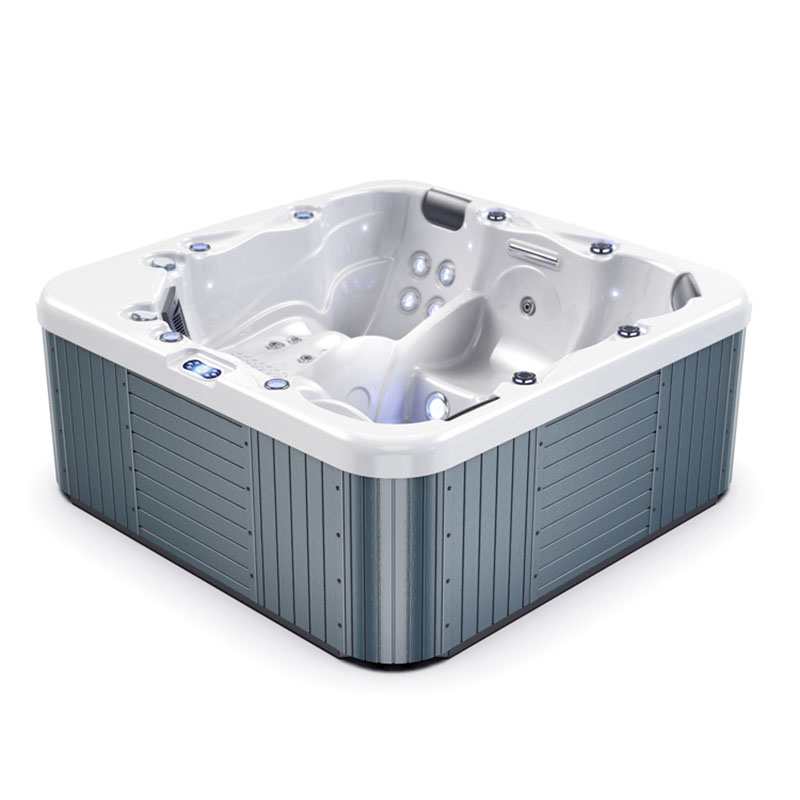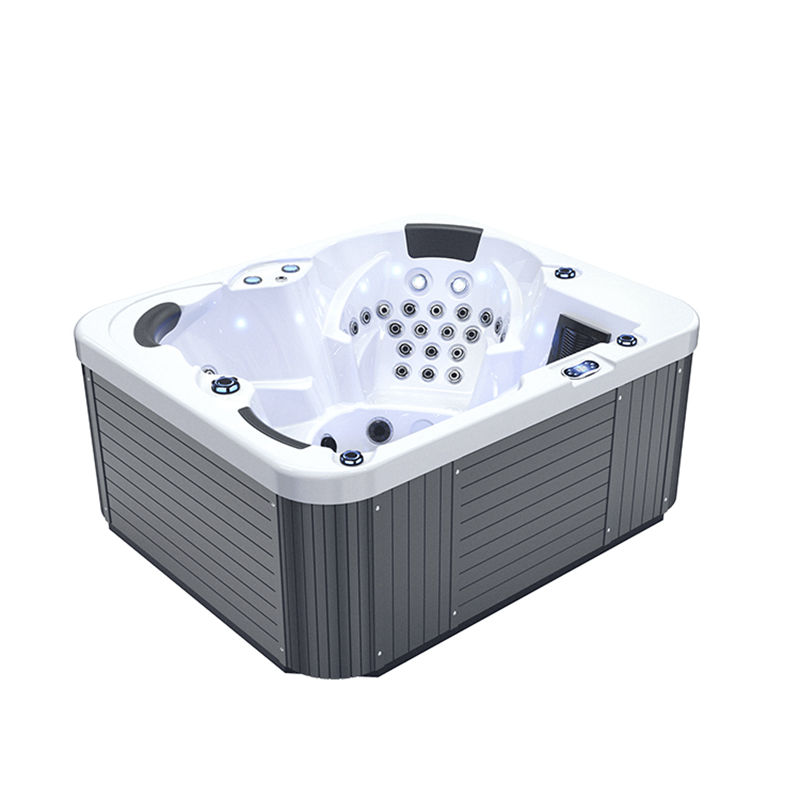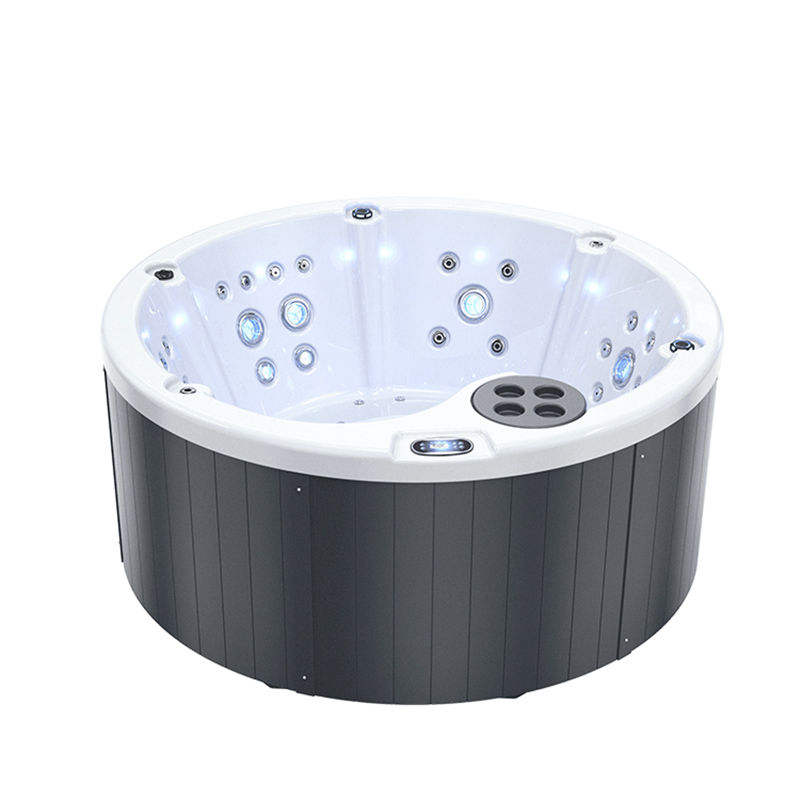With the diversification of family leisure activities, more and more people are choosing to install luxury swim spa tubs, enjoying the dual functions of spa and swimming at home. However, maintaining the cleanliness and safety of the bathtub water is one of the most important issues during use.
Many people think of using household vinegar for disinfection because vinegar is inexpensive, readily available, and natural. But the question is: is vinegar really suitable for disinfecting a luxury swim spa tub?
This article will provide a detailed analysis from multiple perspectives, including water safety, disinfection effectiveness, usage methods, and precautions.
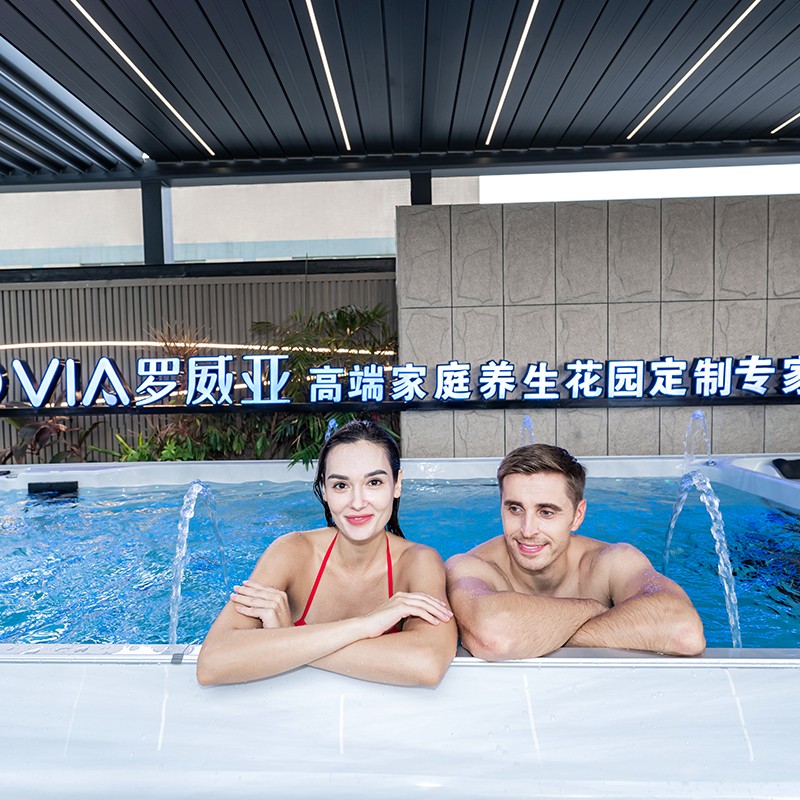
What is a Luxury Swim Spa Tub?
A luxury swim spa tub is an aquatic device that combines the functions of a swimming pool and a whirlpool tub. It is typically equipped with a circulating water pump, jet system, heating device, and filtration system. Compared to a regular bathtub, a luxury swim spa tub has a larger water volume, a more complex circulation system, and is used more frequently, therefore its water quality management and disinfection requirements are more stringent.
When using a luxury swim spa tub, improper water quality management can easily lead to the growth of bacteria, algae, and viruses, posing a health risk. Common disinfection methods include chlorination, bromine disinfection, and ultraviolet disinfection. Some households try natural methods, such as using vinegar.
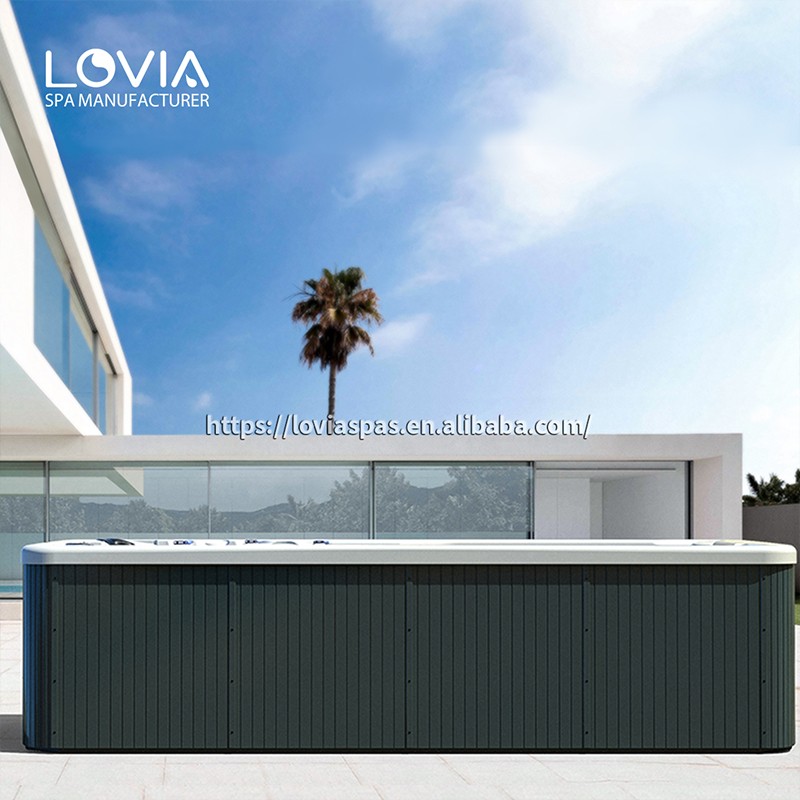
The Chemical Properties and Disinfection Ability of Vinegar
The main component of vinegar is acetic acid, with a concentration generally around 5% (edible vinegar). In the home environment, it is commonly used to remove limescale, clean kitchens, and disinfect. Vinegar has a certain antibacterial effect, which can disrupt the cell wall structure of some bacteria, thereby inhibiting bacterial reproduction. However, it is important to note the following:
• Low acetic acid concentration: Household vinegar has limited disinfection ability, especially against a large number of microorganisms in water (such as E. coli and Pseudomonas aeruginosa) and viruses. Its inactivation effect is far lower than that of professional disinfectants.
• Water dilution issue: Luxury swim spa tubs typically hold 500 to 2000 liters or even more water. Even with the addition of a large amount of vinegar, the water dilution will result in an insufficient acetic acid concentration, making effective disinfection impossible.
• Short-lasting effect: The antibacterial effect of vinegar is short-lived and cannot maintain water quality safety for a long time like chlorine or bromine disinfectants.
From a chemical perspective, vinegar is suitable for surface cleaning or small-area disinfection, but it's insufficient as a primary disinfectant for luxury swim spa tubs.
Can vinegar be used to clean spa tub surfaces?
While vinegar isn't suitable for directly disinfecting bathtub water, it can be used as a cleaning tool. Many users clean the tub's internal pipes, showerhead, surface, and limescale buildup with vinegar after draining the tub. The reasons are as follows:
• Removes limescale and mineral deposits: The weak acidity of vinegar can dissolve calcium and magnesium ion deposits, leaving the tub surface smooth.
• Reduces surface bacterial growth: Although vinegar cannot completely kill bacteria, at high concentrations it can reduce the number of surface microorganisms, playing a supplementary role.
• Environmentally friendly and non-irritating: Compared to strong chlorination, vinegar does not produce an irritating odor or corrosive side effects.
Therefore, vinegar can be used as a supplementary cleaning agent for spa tubs, but it cannot replace regular disinfectants.
What is the correct disinfection method for luxury swim spa tubs?
To ensure water safety, effective disinfection methods must be used. Common methods include:
1. Chlorine Disinfection
Chlorine disinfection is the most common method for disinfecting luxury swim spa tubs, and it has the following characteristics:
• Broad-spectrum bactericidal effect: Kills most bacteria, viruses, and algae.
• Easy monitoring: Residual chlorine concentration can be tested with test strips to ensure water safety.
• Low cost: Chlorine preparations are inexpensive and readily available.
2. Bromine Disinfection
Bromine disinfection is often used in high-temperature water environments (such as hot tubs). Its advantages include:
• High stability: Bromine disinfectants are more stable at high temperatures, providing longer-lasting sterilization.
• Low irritation: Compared to chlorine, bromine is less irritating to the skin and eyes.
3. Ultraviolet (UV) Disinfection
UV disinfection is a physical sterilization method that uses ultraviolet light to destroy the DNA of microorganisms, preventing their reproduction. Advantages:
• No chemical residue: Does not affect the taste of the water or produce an irritating odor.
• Rapid sterilization: Ready to use immediately, suitable for short-term circulating water treatment.
4. Oxidizing Disinfectants
Hydrogen peroxide (H₂O) or ozone can be used as an adjunct disinfection agent, but require specialized equipment and correct dosage.
Conclusion: These methods have scientific basis and proven effectiveness in practice, while vinegar cannot meet the long-term disinfection needs of large volumes of water.
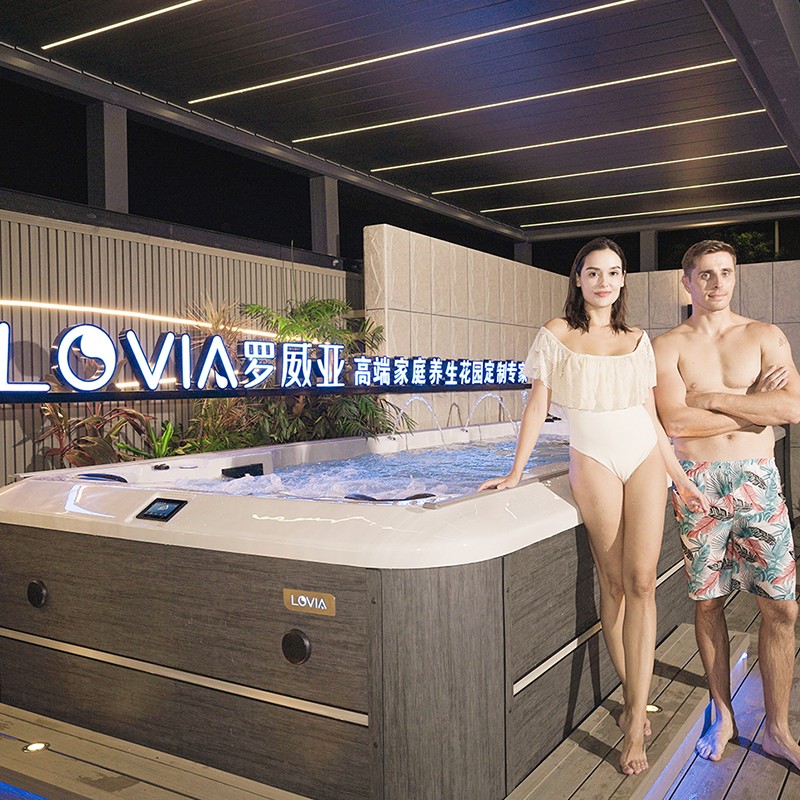
Will Vinegar Affect Luxury Swim Spa Tub Equipment?
Some home users may overlook the impact on equipment when trying to disinfect with vinegar. The analysis is as follows:
• Acid Corrosion: Long-term use of high-concentration vinegar may corrode bathtub pipes, showerheads, filters, and metal parts.
• Disruption of Water Treatment Balance: Spa tubs rely on water quality balance (pH and total alkalinity). The acidity of vinegar will change the pH of the water, affecting the disinfection effect of chlorine or bromine.
• Impact on Circulation System: Acidic water may cause scale buildup or accelerated wear on pumps and pipes.
Therefore, even if you want to use vinegar to assist cleaning, the concentration must be controlled and strictly diluted. Never add large amounts directly to the water.
How to Properly Use Vinegar to Clean a Luxury Swim Spa Tub?
If you still wish to use vinegar for auxiliary cleaning of your spa tub, please refer to the following methods:
• Drain the tub: First, drain the water from the spa tub to prevent vinegar from directly entering a large volume of water.
• Dilute before use: Mix vinegar and water at a 1:1 ratio or lower to avoid corroding the equipment.
• Wipe surfaces: Use a sponge or soft cloth dampened with the vinegar solution to clean the tub surface, showerhead, and drain openings.
• Let it sit for a few minutes: Allow the vinegar to work its cleaning function, but do not soak for an extended period.
• Rinse thoroughly: After cleaning, be sure to rinse thoroughly with clean water to avoid leaving any acidic residue.
• Refill and disinfect: After cleaning, refill the tub with water and disinfect it with chlorine, bromine, or other suitable disinfectant.
In this way, vinegar can safely remove deposits and minor bacteria, but water safety still requires professional disinfectants.
Can vinegar completely replace chlorine or bromine disinfection?
No. Vinegar has limited disinfection effectiveness; it cannot kill large numbers of microorganisms, nor can it maintain long-term water safety. Luxury swim spa tubs require professional disinfectants to ensure water quality.
Can vinegar be used in a small home spa tub?
Even for small swim spa tubs, vinegar is not recommended as the primary disinfection method; it can be used as an auxiliary surface cleaning agent.
Will using vinegar affect the lifespan of a spa tub?
Prolonged use of high-concentration vinegar may corrode spa tub pipes and metal fittings, therefore it must be diluted and rinsed.
Can vinegar be mixed with other disinfectants?
Not recommended. Acidic vinegar may react chemically with chlorine and bromine, reducing disinfection effectiveness or producing irritating gases.
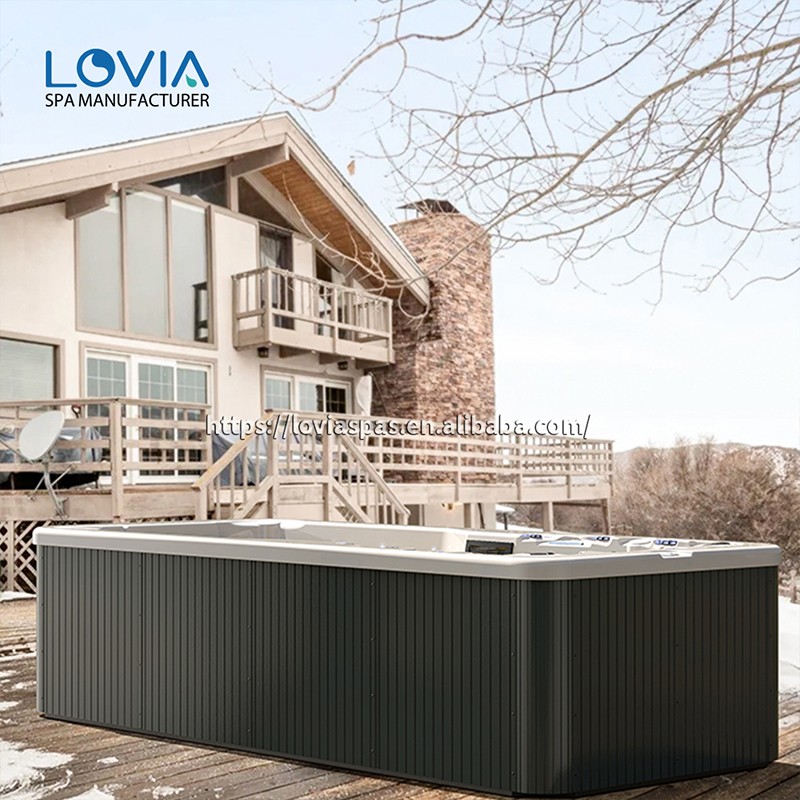
Can vinegar disinfect a luxury swim spa tub?
Vinegar is not suitable as the primary disinfectant for luxury swim spa tubs. While vinegar has some antibacterial and descaling properties in a home environment, its disinfection ability is limited and short-lived when dealing with large volumes of water and complex circulation systems, and cannot guarantee water safety.
The correct approach is:
• Use scientific disinfection methods such as chlorine, bromine, or ultraviolet light to maintain water quality.
• Diluted vinegar can be used during drainage and cleaning to clean surfaces and pipes, removing limescale and minor bacteria. • Avoid prolonged or high-concentration use of vinegar to prevent corrosion of equipment and disruption of water quality balance.
Why Choose LOVIA SPA as Your Spa Supplier?
Choosing LOVIA SPA means choosing experience, value, and quality. Since 1989, our company has focused on producing durable outdoor hot tubs and swim spas designed for luxury comfort and long-term use. We are a trusted factory and exporter offering customized spa manufacturing, OEM services, and wholesale prices directly from our production site in Guangzhou. Buyers benefit from our 2–5-year warranties, strict QC systems, and certifications including CE, ETL, and ISO9001.


